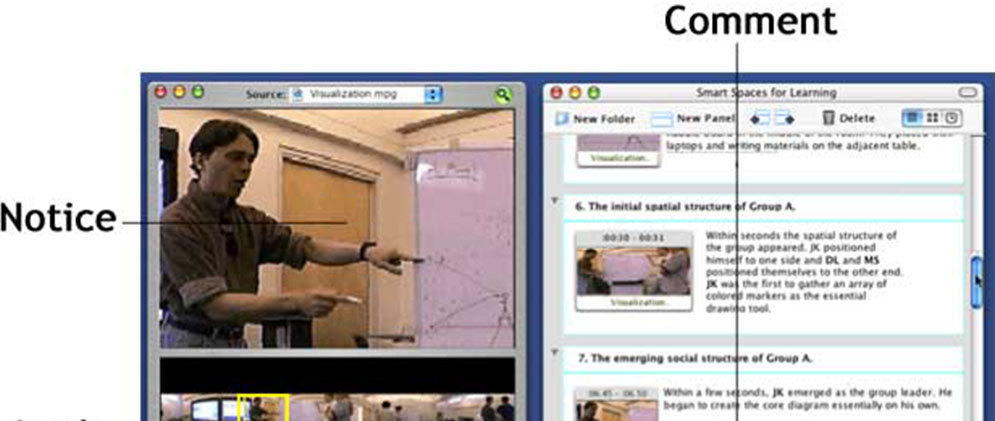DIVER (Digital Interactive Video Exploration and Reflection) ROMP (Research on Online Media Personalization)
From The Theme
ONLINE MEDIA CONTENT
WHAT IF
What if we could develop and study a mechanism for managing media content that preserves media companies’ digital rights, while providing consumers with new video expression and sharing functions?
WHAT WE SET OUT TO DO
We set out to conduct research that would simulate the provision of video personalization capabilities by a media content company. Our studies sought to improve an existing video personalization and collaboration tool, and test the tool’s capabilities in a pilot trial.
The DIVER (Digital Interactive Video Exploration and Reflection) Project at Stanford has developed an online tool that enables people to make a “dive” into any existing digital video source file in order to personalize it, share it, and collaborate around it. Our goal was to enhance the tool, analyze usage data and preferences, and examine participant values regarding the emergent patterns of media personalization in a user community.
WHAT WE FOUND
We developed additional capabilities for the DIVER tool, including: Rating, Search, Email notification and Reporting functions, and piloted the tool with 46 users. Users in the pilot trial were active in creating dialog and interactions for each video in the DIVER library. Participants created their own unique collection of clips, and also regularly visited each other’s collections. Some participants invited other new members to join the DIVER community. Some of the “Most Popular” Dives were visited over 100 times.
LEARN MORE
Diver Website
PEOPLE BEHIND THE PROJECT
 Roy Pea is the David Jacks Professor of Education and the Learning Sciences at Stanford University, Co-Founder and Faculty Director of the H-STAR Institute, Director of the PhD Program in Learning Sciences and Technology Design, and Professor, Computer Science (Courtesy). Since 1981, Dr. Pea has been exploring how information technologies can support and advance the scientific understanding and practices of learning and teaching, with particular focus on topics in science, mathematics, and technology education and their associated symbolic and communicative interchanges that are integral to learning.
Roy Pea is the David Jacks Professor of Education and the Learning Sciences at Stanford University, Co-Founder and Faculty Director of the H-STAR Institute, Director of the PhD Program in Learning Sciences and Technology Design, and Professor, Computer Science (Courtesy). Since 1981, Dr. Pea has been exploring how information technologies can support and advance the scientific understanding and practices of learning and teaching, with particular focus on topics in science, mathematics, and technology education and their associated symbolic and communicative interchanges that are integral to learning.
 Joseph Rosen has several decades experience as a programmer and engineer. From 2002 – 2010 he served as Senior Software Engineer at the Stanford Center for Innovations in Learning. His expertise with digital video dates back to the late 1980’s, when at Apple Computer he contributed to experiments that were a precursor to QuickTime.
Joseph Rosen has several decades experience as a programmer and engineer. From 2002 – 2010 he served as Senior Software Engineer at the Stanford Center for Innovations in Learning. His expertise with digital video dates back to the late 1980’s, when at Apple Computer he contributed to experiments that were a precursor to QuickTime.
 Mike Ananny is an Assistant Professor at USC’s Annenberg School for Communication and Journalism where he researches the public significance of systems for networked journalism. He is also an Affiliated Faculty with USC’s Science, Technology and Society research cluster, and a past Faculty Associate with Harvard’s Berkman Center for Internet & Society.
Mike Ananny is an Assistant Professor at USC’s Annenberg School for Communication and Journalism where he researches the public significance of systems for networked journalism. He is also an Affiliated Faculty with USC’s Science, Technology and Society research cluster, and a past Faculty Associate with Harvard’s Berkman Center for Internet & Society.
